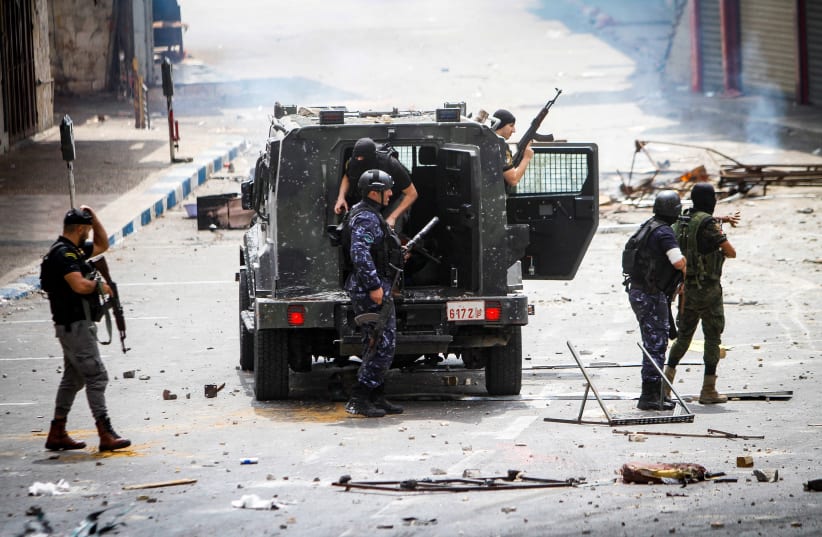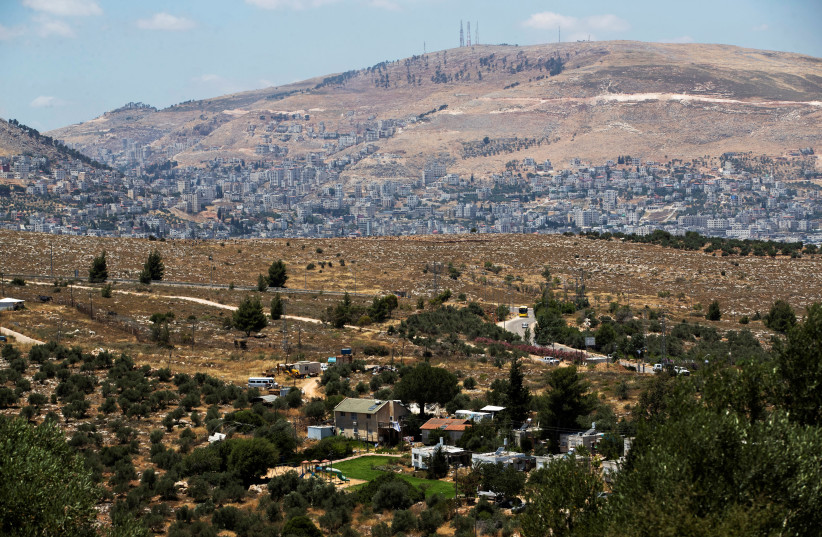Israeli-run industrial zones in the West Bank are unprepared for terrorist attacks and suffer from serious security and workplace safety deficiencies, according to a new report published by the State Comptroller on Tuesday.
There are 35 Israeli-run industrial zones throughout Area C of the West Bank. Some of these industrial zones are located away from settlements, some of them are located next to settlements and some have shopping centers used by both Israelis and Palestinians.
About 5,500 Israelis and 14,100 Palestinians are employed in these industrial zones.
Multiple terrorist attacks have taken place in West Bank industrial zones in recent years, including a stabbing attack in an industrial zone in Ariel in 2015, a shooting attack at the Barkan Industrial Zone and a stabbing attack at the entrance gate to an industrial zone in Ariel in 2022, among others.
The comptroller's report examined seven of the industrial zones in the West Bank.
While in 2009 the military issued an order to organize security and appoint security monitors in factories in the industrial zones, the new report found that there are still not security monitors in all the factories in the industrial zones. The IDF Central Command also does not have data on the appointment of security monitors and one of the district divisions of the military did not approve the security monitors of one of the industrial zones.
Lack of security monitors and oversight pose security risk
The comptroller warned that the lack of security monitors and the lack of oversight over the appointment of these monitors pose a security risk to those present at the industrial zones. The lack of monitors could also enable Palestinian products to enter Israel without the proper checks.
Concerning labor rights in the industrial zones, the comptroller found that the Economy Ministry was not conducting proper surprise checks at the industrial zones and the labor staff officers also did not conduct proper checks of the factories in order to ensure that workers were receiving at least minimum wage.
The comptroller warned that the deficiencies concerning governmental oversight of labor rights in the industrial zones could negatively affect all the workers employed in the industrial zones.
While the comptroller had recommended in 2012 that Israeli workplace safety laws be implemented in the West Bank, the new report found that this still hasn't occurred. Only four out of the 16 labor laws that the government has recommended be implemented in the West Bank have been implemented.
The Civil Administration, the labor staff officer and the Economy Ministry also have not conducted checks concerning compliance with workplace safety laws in Israeli-owned factories.
According to the report, the Civil Administration has not appointed an authority to handle workplace safety issues, has not enforced military orders concerning safety guidelines for Israeli employers and has not checked if Israeli employers have the proper insurance for their Palestinian employees.
The comptroller warned that there are serious safety issues in one of the industrial zones and that a digital camera system for which the Economy Ministry allocated NIS 2 million has not been set up yet.
The comptroller additionally found that one of the industrial zones only had a partial fence surrounding it, placing those inside the zone at risk.
Another industrial zone has no surrounding fence and is not using digital technology used for security checks at the entrances of the zone and is not using metal detectors. The zone also lacks a civilian response force for terrorist attacks.
In total, about 70% of the industrial zones located next to settlements have deficiencies in their security fence.
In three of the industrial zones checked by the comptroller, no area security monitors have been appointed. It is also unclear what the authority and responsibility of the territorial defense officers in the area are. In three of the industrial zones, some Palestinian vehicles that enter the zone aren't checked at all.
The comptroller recommended that the Defense Ministry and IDF, in coordination with the Economy Ministry and local authorities, develop and carry out a plan to fix the deficiencies and fill the gaps in security measures. The plan should be brought before the government to receive a budget.

